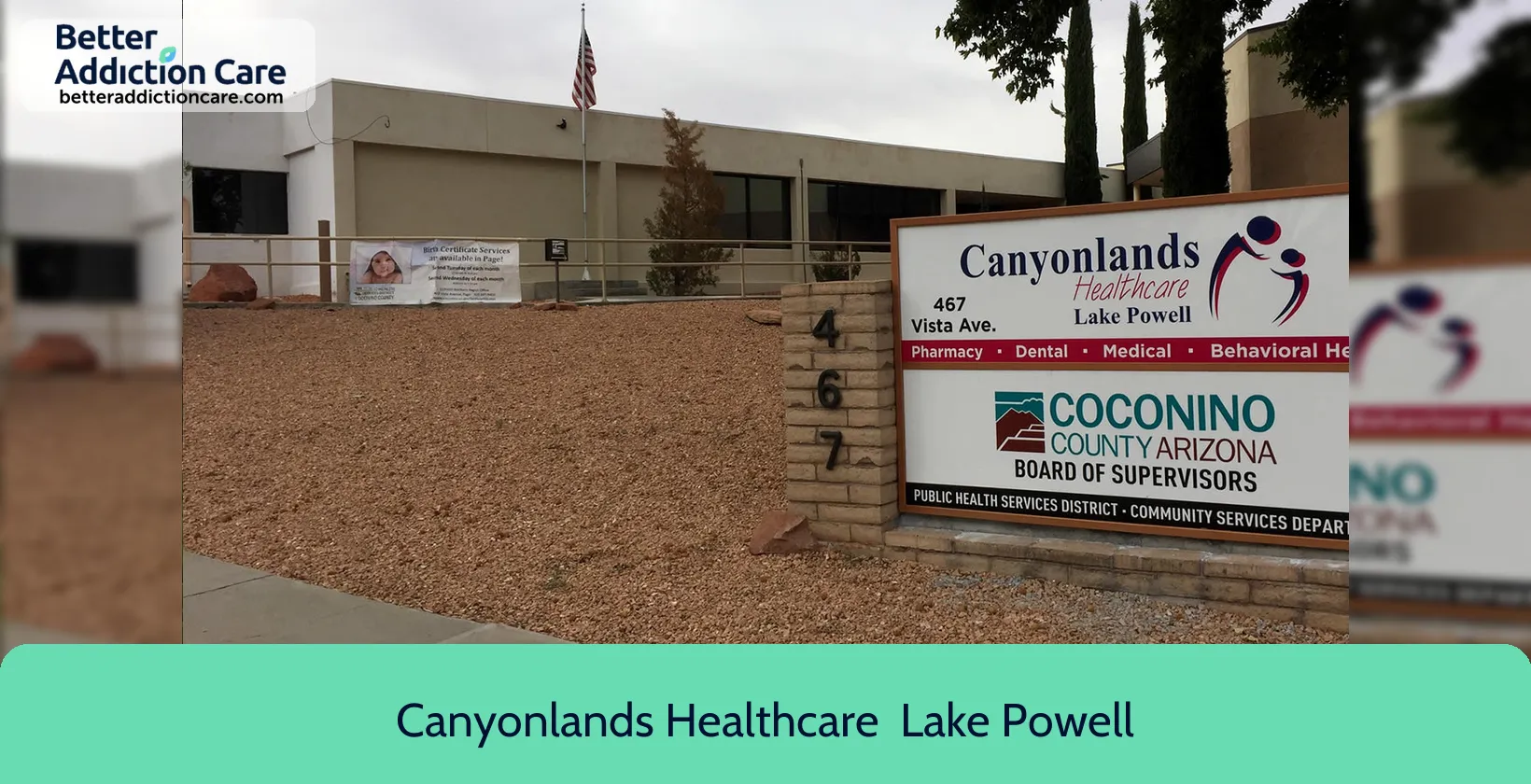Canyonlands Healthcare - Lake Powell Medical Center
Overview
Canyonlands Healthcare - Lake Powell Medical Center is a mental health treatment center for people seeking treatment near Coconino County. As part of their treatment modalities for recovery, Canyonlands Healthcare - Lake Powell Medical Center provides individual psychotherapy, couples/family therapy, and cognitive behavioral therapy during treatment. Canyonlands Healthcare - Lake Powell Medical Center is located in Page, Arizona, accepting cash or self-payment for treatment.
Canyonlands Healthcare - Lake Powell Medical Center at a Glance
Payment Options
- Cash or self-payment
- Medicaid
- Medicare
- State-financed health insurance plan other than Medicaid
- Private health insurance
Assessments
- Screening for tobacco use
- Comprehensive mental health assessment
- Comprehensive substance use assessment
- Interim services for clients
- Outreach to persons in the community
Age Groups
- Seniors or older adults
- Young adults
- Children/adolescents
- Adults
- Seniors
Ancillary Services
- Court-ordered outpatient treatment
- Diet and exercise counseling
- Integrated primary care services
- Mental health services
Highlights About Canyonlands Healthcare - Lake Powell Medical Center
7.60/10
With an overall rating of 7.60/10, this facility has following balanced range of services. Alcohol Rehabilitation: 8.00/10, Drug Rehab and Detox: 8.46/10, Insurance and Payments: 6.00/10, Treatment Options: 7.94/10.-
Drug Rehab and Detox 8.46
-
Alcohol Rehabilitation 8.00
-
Treatment Options 7.94
-
Insurance and Payments 6.00
Accreditations
State department of health:

Government agencies issue State Licenses, granting permission to rehabilitation organizations to conduct their business operations lawfully within specific geographic regions. Generally, the particular rehabilitation programs offered by a facility and its physical location dictate the necessary licenses needed for legal operation.
Federally Qualified Health Center:
Federally Qualified Health Center (FQHC) accreditation is a process of evaluation and recognition by the federal government for community health centers that provide comprehensive and accessible healthcare services to underserved populations. FQHC accreditation is essential for centers to receive federal funding and to ensure that they meet standards for quality, patient-centered care.
Treatment At Canyonlands Healthcare - Lake Powell Medical Center
Treatment Conditions
- Alcoholism
- Mental health treatment
- Substance use treatment
- Co-occurring Disorders
Care Levels
- Outpatient
- Outpatient detoxification
- Outpatient methadone/buprenorphine or naltrexone treatment
- Regular outpatient treatment
- Aftercare
Treatment Modalities
- Individual psychotherapy
- Couples/family therapy
- Cognitive behavioral therapy
- Integrated Mental and Substance Use Disorder treatment
- Activity therapy
Ancillary Services
Additional Services
- Pharmacotherapies administered during treatment
- Mentoring/peer support
- Breathalyzer or blood alcohol testing
Special Programs
- Clients with co-occurring mental and substance use disorders
- Veterans
- Active duty military
- Members of military families
- Criminal justice (other than DUI/DWI)/Forensic clients
Get Help Now
Common Questions About Canyonlands Healthcare - Lake Powell Medical Center
Contact Information
Other Facilities in Page

7.68
DISCLAIMER: The facility name, logo and brand are the property and registered trademarks of Encompass Health Services - Page Outpatient, and are being used for identification and informational purposes only. Use of these names, logos and brands shall not imply endorsement. BetterAddictionCare.com is not affiliated with or sponsored by Encompass Health Services - Page Outpatient.

